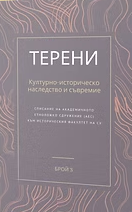The Issue of Confessional Affiliation Concerning the Construction of Ethnic Identity: The Example of Macedonians with Islamic Religion
DOI:
https://doi.org/10.60053/TER.2018.3.217-228Abstract
This article examines the relation between ethnic/national identity and religion, i.e. confessional affiliation of the individual or of the group/community at the Balkans, focusing upon the situation In the Republic of Macedonia. The emphasize is put upon the terms “Macedonian Muslim”, “Islamized Macedonian” and “Torbesh”, in cases where they are used either as a ethnic name or an exonym, and upon their transformation during the last two decades in the Macedonian political discourse. The text also speaks about the role of religion in the (re)construction of Macedonian identity, as well as the way in which this relation shaped the change of the discourse. The issue of the Macedonian, examined from the aspect of ‘otherness’ and ‘the self’, as someone “radically Other”, or “insufficiently One’s own”, or “insufficiently Ours”, are issues that lead to emphasizing differences in a negative connotation, making them available for politicization. The role of the global changes related to confessional affiliation and its relevance in the construction of ethnic affiliation are also important factors, examined in this text. If contemporary society finds that the democratic process is insufficiently representative if it does not reflect the versatility of the population, first of all through qualitative representation, as well as implementing its core interests and its subcultures, one can expect that each isolation and neglect opens a possibility for the emergence of constructions/politicization of different kind, especially of ones that are related to religion.






